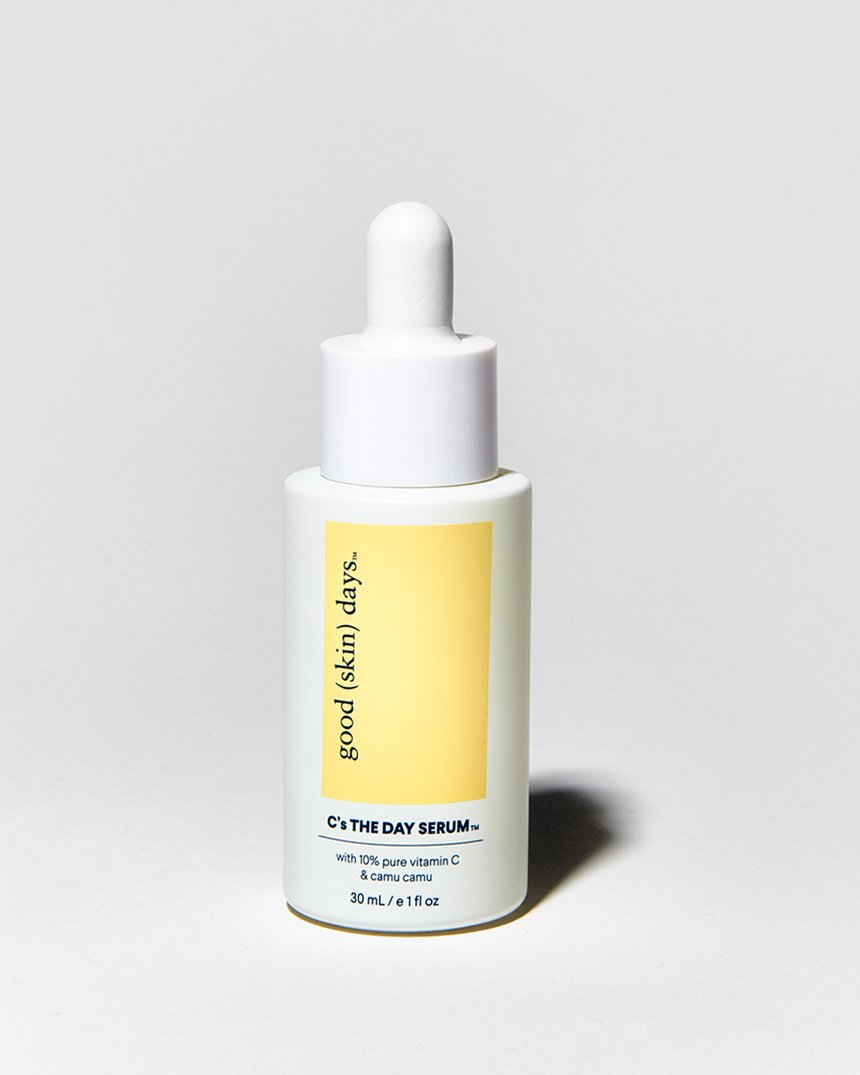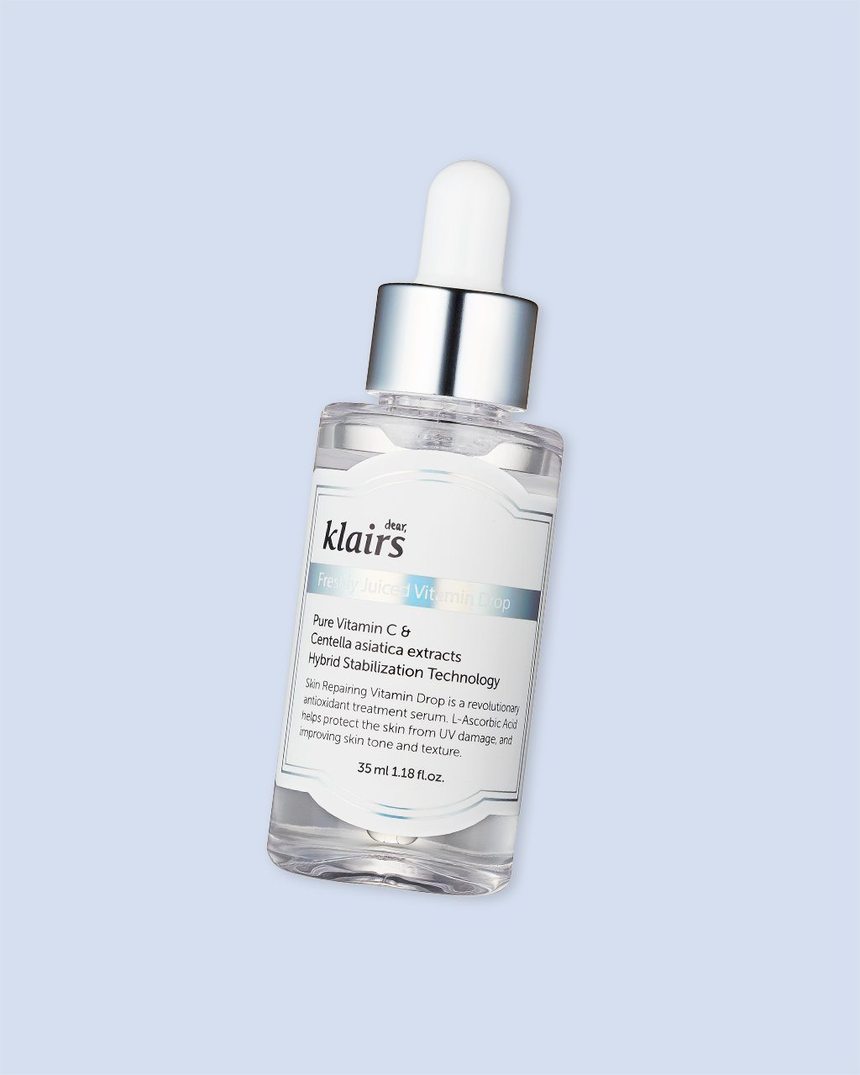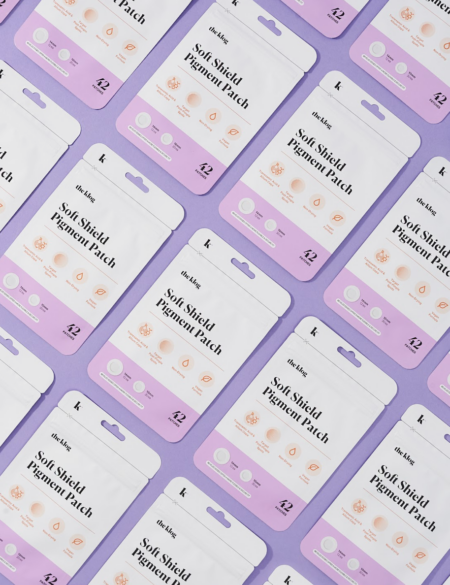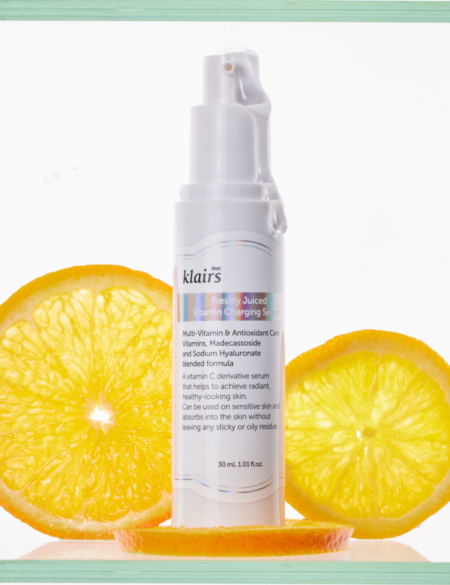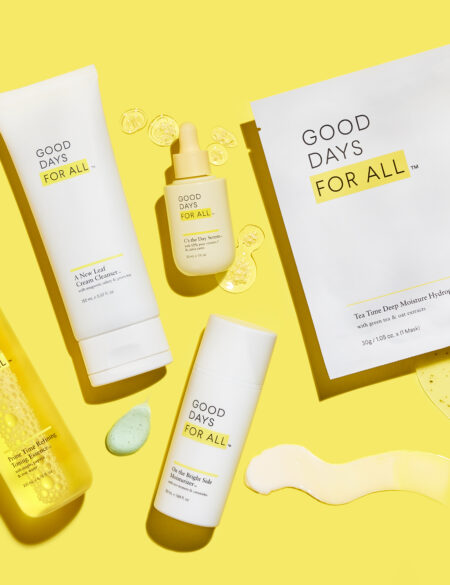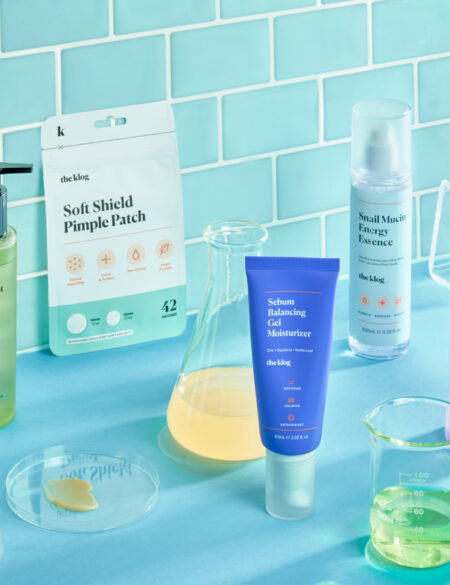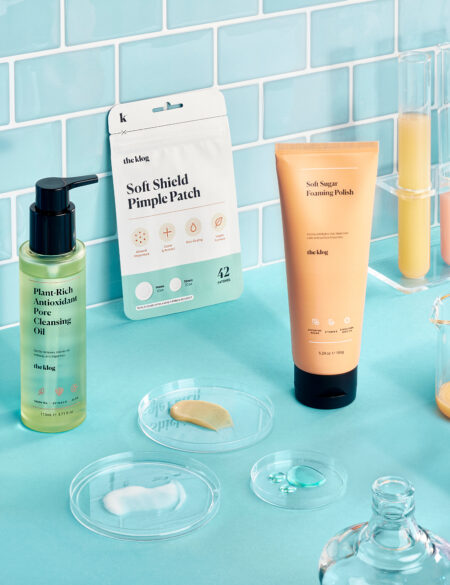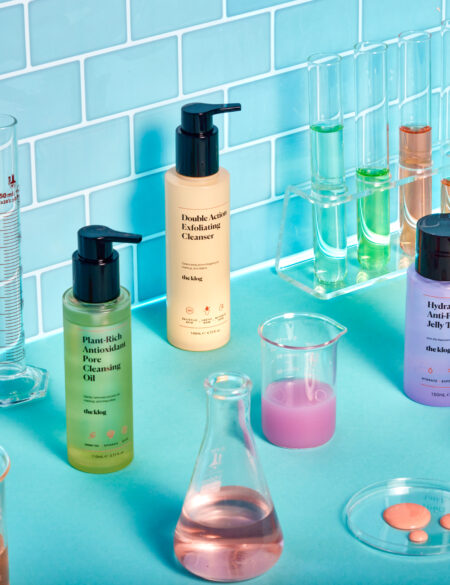Whether you have sensitive skin or would rather shop your own skin care stash than add a new product to the mix, discover five retinol alternatives that are anti-aging and acne-fighting below.
If you’ve poked around beauty retail shelves, scrolled through skin care-centric Insta channels, or have perused any beauty magazine in the last few months then you’ve probably noticed that retinol, a longtime dermatologist favorite, is having a major mainstream moment.
When we interviewed Dr. Anna Guanche several months ago, she told us that retinol is considered “the most powerful anti-aging topical known to us at this time.” It not only prevents damage and fine lines, but also reverses it. Retinol is also a powerful acne treatment.
RELATED: How to Add Prescription Skin Care Into Your Routine Without Any Fear
All that said, it’s important to acknowledge that retinol isn’t always rainbows and glitter. That’s why we’re providing five retinol alternatives that do everything from plump skin to clear clogged pores.
Retinol is a potent and effective ingredient, for sure, but some sensitive skin types don’t handle it very well. The most common side effects are purging-related acne, peeling, dry and flaky skin, redness, discomfort, and increased sensitivity. Even people with robust skin may experience some of these negative reactions to retinol that cause them to cease usage.
That’s why retinol alternatives, like bakuchiol, are trending right along side the real thing. Below, we’ve outlined five retinol alternatives that compare to the real thing from two board-certified dermatologists.
Topical Bakuchiol
Bakuchiol is a phenol that’s found abundantly in the seeds and leaves of a plant called psoralea corylifolia. It’s arguably the buzziest and most akin retinol alternative.
“Bakuchiol has been studied in medicine for its possible anti-cancer benefits, but more recently has been found to have anti-aging benefits, as well,” says Dr. Y. Claire Chang, a board-certified cosmetic dermatologist at NYC’s Union Square Laser Dermatology. “In an initial study in 2014 published in the International Journal of Cosmetic Science, in vivo studies showed that bakuchiol has retinol-like properties and could stimulate collagen production. Clinically, twice daily application for 12 weeks showed improvement in photodamage, wrinkles, pigmentation, elasticity, and skin firmness.”
She adds that another study, published in 2018 in the British Journal of Dermatology, evaluated 44 patients who used either bakuchiol 0.5% cream or retinol 0.5% cream. Researchers found that both ingredients significantly decreased wrinkles and brown spots. Further, the study found no statistically significant difference in effects between bakuchiol and retinol in terms of improving the signs of photoaging.
To be clear, this was one small study and larger studies are still needed to confirm this. So far, though, the two ingredients are pretty comparable. One factor that sets them apart, though, is that bakuchiol seems to be much gentler on the skin. Dr. Chang says, “Bakuchiol typically does not come with the retinol-related uncomfortable side effects, like dryness, flaking, and irritation.”
Products to try: Biossance Squalane + Phyto-Retinol Serum; Olehenriksen Goodnight Glow Retin-ALT Sleeping Crème
Benzoyl Peroxide
In addition to retinol serving as an anti-aging ingredient, it can also do wonders for acne-prone skin. In fact, retinol (tretinoin) was originally only prescribed to those with acne. Upon extended topical usage, the anti-aging benefits were discovered.
Dr. Shelley Fox, a board-certified family nurse practitioner who specializes in dermatology at Upper Westside Dermatology in New York, says that benzoyl peroxide is an excellent retinol alternative for those seeking acne treatments.
“Benzoyl peroxide can be purchased in many over-the-counter preparations of various concentrations from 2% to 10%. Similar to retinoids, benzoyl peroxide has keratolytic effects, meaning it helps to shed the outer layer of the skin, giving a clean, refreshed sensation. It also has the ability to kill bacteria,” says Dr. Fox. “Unfortunately, it doesn’t quite compare to retinol for anti-aging effects because it has a completely different mechanism of action at the cellular level.”
For that reason, Dr. Fox doesn’t recommend it as a retinol alternative if you’re looking for anti-aging products. (We also want to note that benzoyl peroxide is regulated in South Korea and is typically only available via prescription, which is why you won’t find it in any K-Beauty products. Dr. Fox noted that an additional retinol alternative for treating acne is salicylic acid, which you’ll find in numerous K-Beauty products.)
Products to Try: Paula’s Choice Clear Regular Strength Daily Skin Clearing Treatment with 2.5% Benzoyl Peroxide; Kate SomervilleAnti Bac Clearing Lotion
Azelaic acid
Another retinol alternative to consider is azelaic acid, which is most often available in prescription form. There are a few over-the-counter treatments, as well, but these contain lower concentrations and therefore aren’t quite as potent. Dr. Fox says this ingredient is used to treat blemishes, pigment disorders, rosacea, and severe acne.
“Azelaic acid has some powerful antibacterial effects and helps prevent clogged pores. [In addition], it provides a more even skin tone appearance over time,” says Dr. Fox. “It’s not a first line option for anti-aging or acne, but definitely still a top contender.”
Products to Try: The Ordinary Azelaic Acid Suspension 10%; DermaDoctor Picture Porefect
Alpha and Beta Defensins
“Alpha and beta defensins are natural immune proteins that have been shown in in vitro studies to activate stem cells in the hair follicle, which typically helps with wound healing of the skin,” says Dr. Chang.
She says that one multicenter, blinded controlled trial published in Journal of Drugs in Dermatology in 2018 evaluated 44 patients using a new skin care product by DefenAge that utilized alpha and beta defensins. The study demonstrated an improvement in brown spots, skin evenness, and the appearance of wrinkles. It also reduced visible pores.
“The product has retinol-like effects without the inflammation associated with retinol,” says Dr. Chang. “However, there are no comparative studies to-date between the alpha and beta defensins containing products and retinols. More clinical trials and long-term safety data are needed.”
Products to Try: DefenAge 8-in-1 Bioserum; DefenAge 24/7 Barrier Balance Cream
Topical Vitamin C
Vitamin C is truly the gift that keeps on giving, and it can potentially serve as a gentler alternative to retinol.
“Vitamin C is one of the most powerful antioxidants for the skin, helping to fight damage from your daily exposure to the sun and environmental pollutants. It’s also a powerful preventative, anti-aging ingredient,” says Dr. Chang. “Although it works by different mechanisms from retinol, it helps brighten the skin, lighten brown spots and photodamage, and stimulates collagen production to prevent fine lines.”
There currently aren’t any comparative studies of retinol versus vitamin C for the skin, but both have been proven effective in individual studies. Dr. Chang does note that while vitamin C has less risk of dryness and redness compared to retinol, it may still be irritating for some.
Products to Try: Good (Skin) Days C’s The Day Serum; Klairs Freshly Juiced Vitamin C Serum



